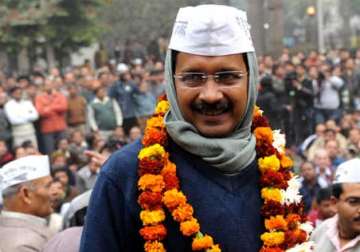New Delhi: Extremely high levels of dust, smog and air pollutants are wreaking havoc on the city dwellers' health. Even though Delhi has been ranked as the world's most polluted city, the issue has never made it to the election agenda.
Whether the Delhi chief minister and the AAP like it or not, Delhi's poor air quality is something he will need to address.
Recently, the Delhi High Court asked the Delhi Government's Geospatial Authority to provide a detailed pollution map of the Capital since 2010 and has directed the Delhi Pollution Control Committee (DPCC) to furnish data with regard to air quality being monitored by it at six different locations in the city.
A Division Bench comprising justices Badar Durrez Ahmed and Sanjeev Sachdeva has said that air pollution in certain areas of Delhi like Anand Vihar, was at "hazardous levels" and said the data has to be provided from each monitoring station on the levels of pollution recorded during various times of the day over a period of one week. The court also said that it wants to see results.
The court issued the directions while hearing a PIL on the problem of poor ambient air quality in Delhi, an issue which it has taken up suo motu and in which it has also appointed an amicus curiae.
The court also took note of reports that over 50 per cent of children in the Capital were suffering from respiratory problems caused by poor ambient air quality.
The new government will also need to implement the order issued by the National Green Tribunal in November on addressing air pollution.
As mentioned in Aam Aadmi party's manifesto, Delhi's new CM Arvind Kejriwal will likely attempt to get a more efficient mass transport system for commuters. But such things don't happen overnight. However, a step like this could get impetus by restricting the plying of private vehicles in the city, along with prohibitive increases in parking costs. Such measures may seem harsh but against the potential deathtraps that pollution could turn our cities into, it will be a small price to pay.
For Kejriwal, there could be another pressing reason to tackle pollution in the city that he has just won: politics. The most vulnerable to the risks of urban air pollution are the city's poorest — those who live in slums; and make a living by labouring manually outdoors; plying auto-rickshaws; or vending their fare on the streets — many of whom are the real aam aadmi who've reposed their faith in AAP.
Latest India News
